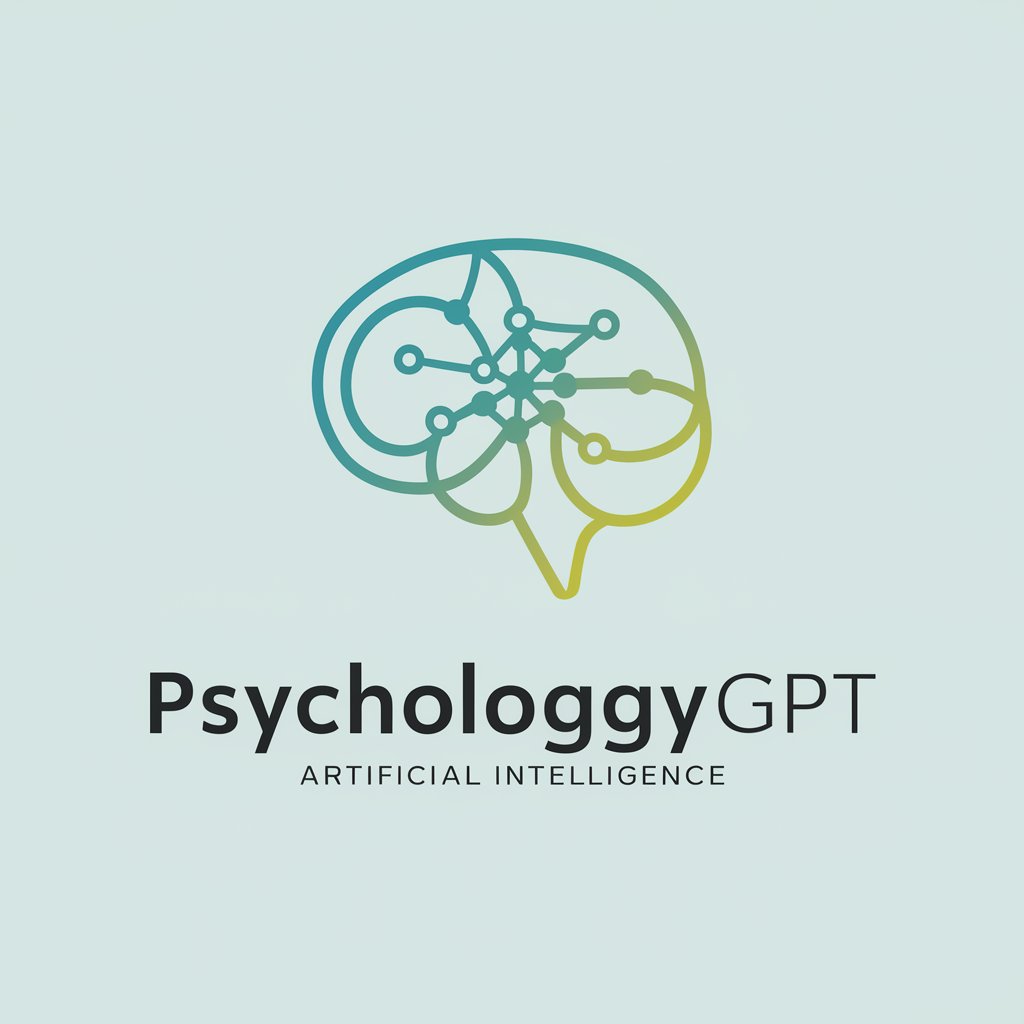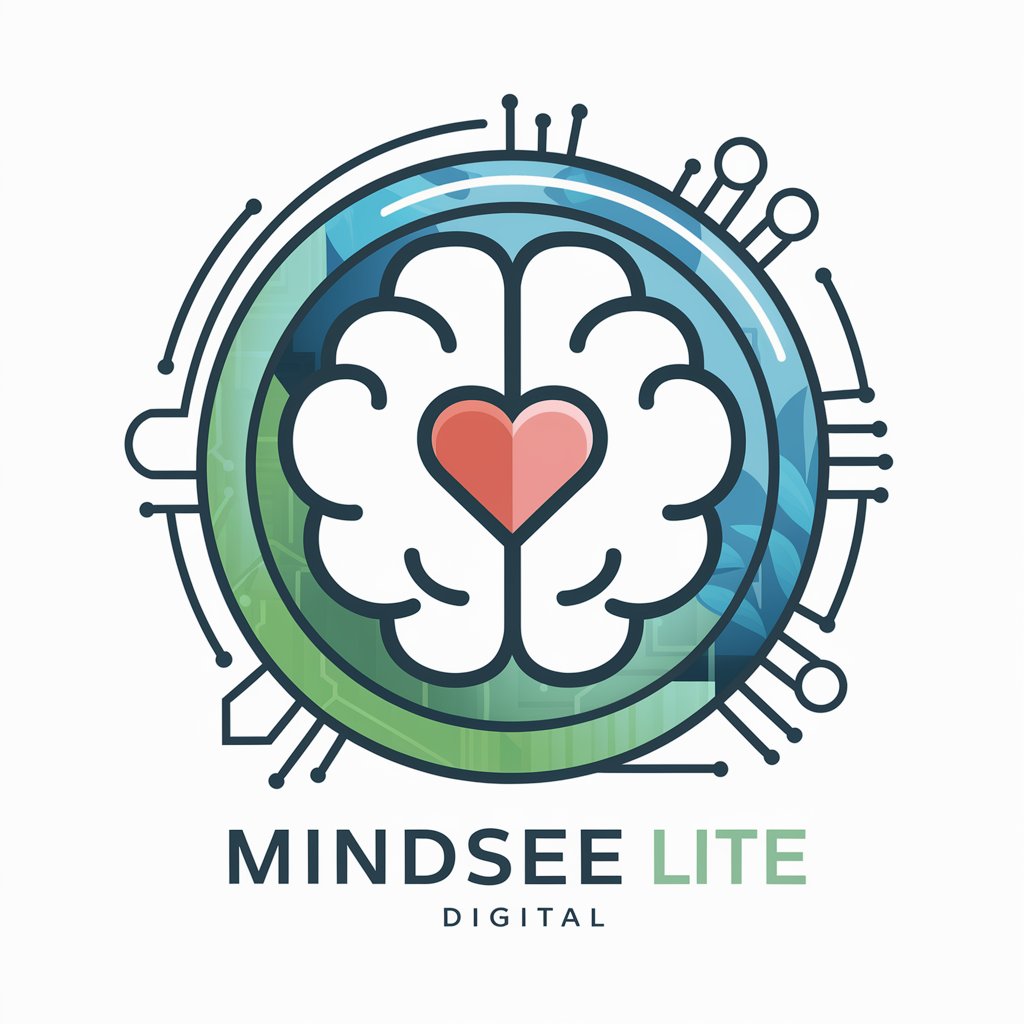
Psychologist GPT - Empathetic AI Support Tool

Hello, I'm here to offer support and understanding.
Empathetic AI for Emotional Wellbeing
I'm feeling overwhelmed and could use some support.
I've been struggling with sleep lately and don't know what to do.
Work has been really stressful and I'm not sure how to cope.
I'm having difficulties in my relationship and need someone to talk to.
Get Embed Code
Understanding Psychologist GPT
Psychologist GPT is a specialized AI model designed to provide emotional support and empathy. It is not a replacement for professional psychological help but serves as a digital companion for those seeking a space to share and process their feelings. This GPT model focuses on empathetic listening, offering understanding and compassionate responses. Its design is centered around creating a calming and safe environment for users, employing gentle, inclusive, and non-judgmental language. For instance, if a user is experiencing stress due to work, Psychologist GPT would respond by acknowledging their feelings, validating their experience, and offering soothing words to help them feel heard and understood. Powered by ChatGPT-4o。

Functions of Psychologist GPT
Emotional Support
Example
A user shares feelings of loneliness. Psychologist GPT responds with empathetic statements, acknowledging their feelings and providing comforting words.
Scenario
A user going through a breakup or feeling isolated.
Stress Management
Example
A user talks about their overwhelming workload. Psychologist GPT offers empathetic responses, helping them feel understood and less alone in their struggle.
Scenario
A professional facing high levels of work-related stress.
Sleep Problems
Example
A user struggles with insomnia. Psychologist GPT responds with soothing words, creating a calm atmosphere conducive to sleep.
Scenario
Individuals dealing with sleep disturbances or anxiety at bedtime.
Ideal Users of Psychologist GPT Services
Individuals Seeking Emotional Support
People experiencing daily stress, emotional challenges, or just needing a space to talk. They benefit from the empathetic and non-judgmental listening that Psychologist GPT offers.
Professionals with Work-Related Stress
Professionals facing burnout or high-pressure environments can use Psychologist GPT as a tool to process their feelings and find a moment of calm amidst a hectic schedule.
Anyone Experiencing Relationship Issues
Individuals navigating the complexities of relationships, whether romantic, familial, or social, find a safe space in Psychologist GPT to express and understand their emotions.

Guide to Using Psychologist GPT
1
Visit yeschat.ai for a free trial, accessible without the need for login or ChatGPT Plus subscription.
2
Choose 'Psychologist GPT' from the available chat options to start your session.
3
Articulate your thoughts, feelings, or concerns clearly to ensure the most empathetic and relevant response.
4
Engage in a conversation, using Psychologist GPT for emotional support, stress relief, or as a non-judgmental space for sharing.
5
Remember to use this tool as a supplement to professional therapy and not as a substitute for medical or psychological treatment.
Try other advanced and practical GPTs
WeddingReady
Your AI-Powered Wedding Planner

MillionaireMingle
Navigating Luxury with AI Elegance

Meditation GPT
Elevate Your Inner Peace with AI

Fortune Telling
Your AI Guide to Timeless Insights

Yellow Fever
AI-Powered Cultural Companion in Dating

Dermatology Advisor
Empowering Dermatology with AI Insight

UX Monday
Empowering Your UX Journey with AI

Sen's Active Directory Helper
Streamlining Active Directory Management with AI

Chord Maestro
AI-Powered Guitar Learning Companion

Fashion Forecast
Dress smartly, whatever the weather, with AI-powered fashion insights.

Australian Building Buddy
Your AI-powered construction advisor

Jazz With Me
Elevate Your Jazz with AI-Powered Chords

Frequently Asked Questions about Psychologist GPT
Can Psychologist GPT provide professional mental health diagnosis?
No, Psychologist GPT cannot provide diagnoses or replace professional mental health care. It's designed for emotional support and empathy.
Is it suitable for children and teenagers?
While Psychologist GPT is empathetic and supportive, supervision by an adult is recommended for younger users to guide the context of use.
How does Psychologist GPT maintain privacy?
Conversations with Psychologist GPT are confidential, with no personal data stored or shared. However, users should avoid sharing sensitive personal information.
Can I use Psychologist GPT for crisis situations?
Psychologist GPT is not designed for crisis situations. In such cases, it's vital to contact local emergency services or a professional mental health provider.
Does Psychologist GPT adapt to individual user needs?
Yes, it is programmed to understand and respond empathetically to a wide range of emotions and situations, adapting to the tone and content of the user's input.





